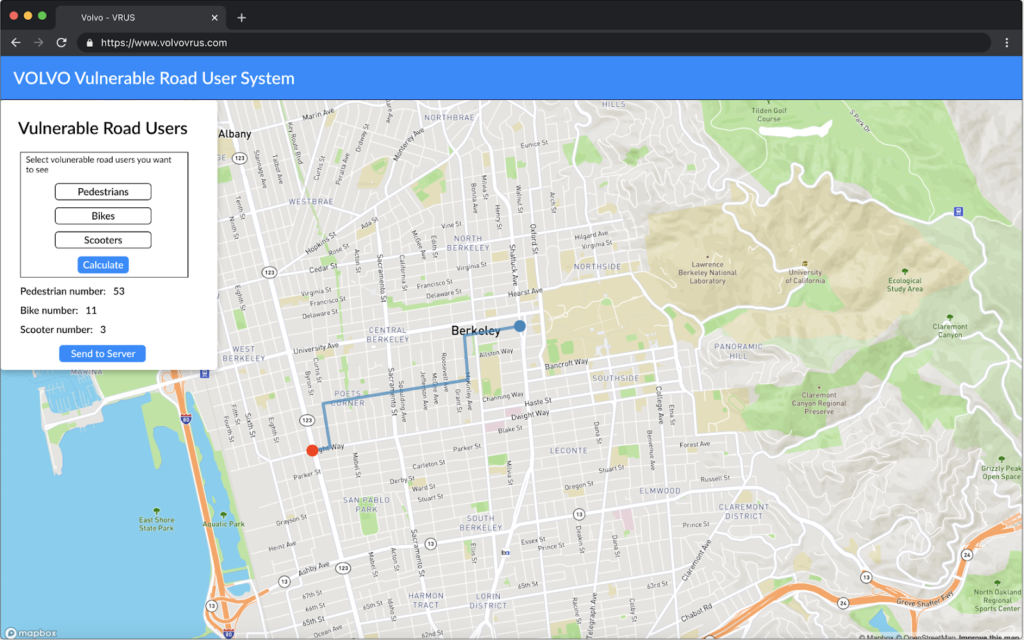Machine Learning Prevents Road Deaths
A Volvo-Berkeley partnership has led to the creation of a new vulnerable road user system that helps reduce the risk of road accidents.
A group of UC Berkeley students has partnered with Volvo in order to create a system that can detect vulnerable road users, potentially leading to a large reduction in the amounts of road accidents across the world. By analyzing data, running simulations, and creating a server, the group has created a system that can accurately determine if a road user is at risk for a road accident. Have you ever come close to being in a traffic accident? Have you ever actually been in one? The chances are likely that you have. In 2018 alone, there were 12 million road accidents. These accidents encompass any type of traffic accident, such as those on the road involving pedestrians, cyclists, or cars. This has translated into roughly 38,000 people dying from road accidents every year, with the fatality rate being 12.4 per 100,000 inhabitants. Vulnerable road users such as pedestrians, cyclistes and etc are more likely to suffer serious injury in road accidents.

In order to combat this, the Vulnerable Road User group at Berkeley has partnered with Volvo in order to produce a system that can identify these vulnerable road users, in order to hopefully lead to a reduction in the traffic accidents across the world. By developing a location server and web view, processing and analyzing data related to vehicle accidents, and processing simulations, the group hopes it can make an impact on the reduction of road accidents. This technology will help in meeting that goal by alerting drivers when there are potential vulnerable users threats in real time. With a data-driven approach, this group aims to protect vulnerable road users and minimize loss.
The implications of this technology are wide-reaching and impactful. A reduction in road accidents leads to less loss of life, safer roads, and a minimization of the financial impact on those that are involved in road accidents. This technology has the potential to change roads for the better.
This project was made in collaboration with Volvo and contributed to by Charlie Peng, Coby Gonzalez, Cynthia Ji, Philippe Li, and Yintang Yang.